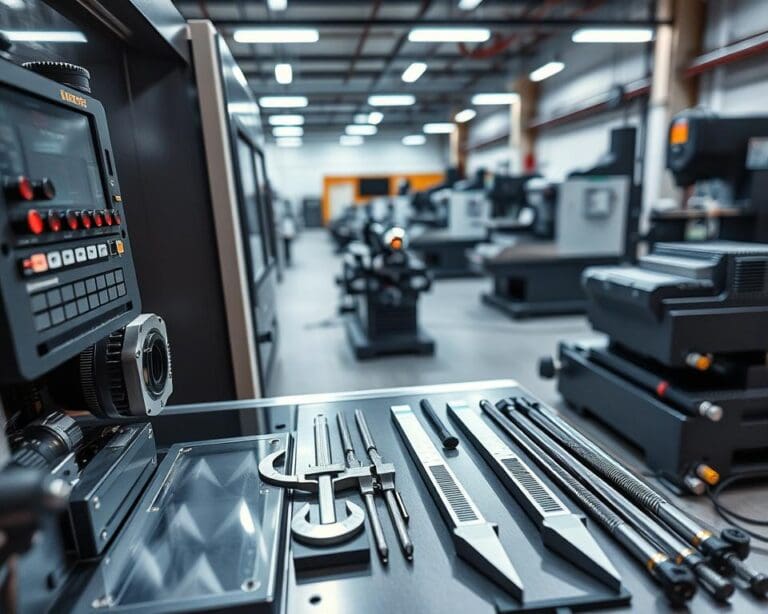The journey to become a medical technologist is both rewarding and essential in the realm of healthcare. As a med tech, you will play a vital role in diagnostics and patient care by conducting laboratory tests that guide treatment decisions. Understanding how to become a med tech involves exploring various educational pathways, certification steps, and the potential career opportunities that await you. This article will provide a detailed overview of the medical technologist career path, offering insights and resources for those interested in becoming a medical laboratory technician.
Understanding the Role of a Medical Technologist
The medical technologist role encompasses a breadth of responsibilities critical to effective healthcare delivery. As the healthcare landscape evolves, the contribution of these professionals continues to be vital in diagnosing and monitoring diseases. Recognising the key responsibilities of medical technologists provides insight into their everyday tasks and the significance they hold within the medical community.
Key Responsibilities of a Med Tech
Medical technologists engage in several essential activities, ensuring laboratory operations run smoothly. Their key responsibilities include:
- Conducting complex laboratory tests to assist in diagnosing medical conditions.
- Operating and maintaining laboratory equipment to guarantee optimal performance.
- Performing quality control measures to validate the reliability of test results.
- Collaborating with healthcare professionals to interpret testing outcomes effectively.
Importance of Med Techs in Healthcare
The importance of med techs in healthcare cannot be understated. Their expertise directly influences patient outcomes through accurate testing and timely reporting. Medical technologists play a pivotal role in multidisciplinary healthcare teams, supporting doctors in making informed decisions about patient treatment. Their contributions ensure that patients receive the best possible care, highlighting the necessity of their skill set within the healthcare framework.

How To Become A Med Tech
Embarking on a med tech career path offers a fulfilling journey filled with opportunity and growth. Understanding the steps involved can significantly enhance your chances of success. Whether you are fresh out of school or seeking a career change, knowing how to become a med tech is essential.
Overview of the Med Tech Career Path
The med tech career path typically begins during secondary education, where students should focus on subjects like biology, chemistry, and mathematics. Following this foundational knowledge, pursuing a degree in medical technology or laboratory science is a crucial next step. Universities throughout the UK offer programmes tailored for aspiring medical technologists, showcasing various courses and specialisations.
Entry-level positions in laboratories, such as laboratory assistants, provide invaluable hands-on experience. This role allows individuals to familiarise themselves with testing procedures and laboratory protocols while continuing their education. Furthermore, engaging in practical training opportunities enhances skillsets, preparing future med techs for a successful career.
Educational Requirements for Med Tech
To embark on a rewarding career as a medical technologist, prospective students must navigate the crucial education requirements for med tech. This typically involves obtaining a bachelor’s degree in medical technology or a related field. Furthermore, certification from credible organisations such as the Health and Care Professions Council (HCPC) is essential for professional practice.
Degrees and Certifications Needed
The education required includes the following key elements:
- Bachelor’s degree in medical technology or life sciences
- Completion of an accredited clinical training programme
- Certification from recognised bodies, emphasising the importance of degrees and certifications
Recommended Programs and Institutions
Several universities in the UK offer exceptional programmes to help aspiring med techs succeed. Here are some recommended programs:
- University of Exeter – Bachelor of Science in Medical Technology
- King’s College London – Bachelor of Science in Biomedical Science
- University of Glasgow – Bachelor of Science in Medical Technologist Studies
Selecting any of these recommended programs can significantly enhance one’s preparation for the workforce, ensuring alignment with the education requirements for med tech and the necessary certification processes.
Steps to Pursue Med Tech Profession
Embarking on the journey to a career in medical technology involves a series of well-defined steps, ensuring a comprehensive understanding of the field. Education and training play a crucial role in equipping aspiring professionals with the knowledge and skills essential for success. Practical experience further enhances this foundation, bringing theoretical concepts into real-world application.
Navigating Through Education and Training
The first step to pursue a med tech profession typically begins with obtaining the necessary academic qualifications. Many institutions offer specialised programmes in medical technology, allowing individuals to gain critical knowledge about laboratory techniques and medical procedures. Coursework typically encompasses subjects such as microbiology, chemistry, and pathology, laying the groundwork for future practice. Engaging in such education and training not only prepares candidates but also paves the way for certification examinations.
Gaining Practical Experience
In parallel with formal education, gaining practical experience proves invaluable. Participating in internships or clinical placements allows students to apply theoretical learning in supervised environments. Volunteering at local hospitals or laboratories can provide insights into daily operations, supporting a deeper understanding of the role’s demands. Networking within professional circles, such as joining relevant societies and attending job fairs, helps candidates build relationships and gain insights into the steps to pursue med tech profession. Each of these experiences contributes to a robust foundation, essential for a successful career in medical technology.
Med Tech Qualifications and Skills
Embarking on a career as a medical technologist requires a specific set of med tech qualifications and a diverse range of essential skills. Understanding these foundational elements enhances opportunities for growth and success in this vital healthcare role.
Essential Skills for a Successful Med Tech
Medical technologists must cultivate various essential skills to function effectively in their roles. Key skills include:
- Analytical abilities: The capacity to interpret complex data and make informed decisions.
- Attention to detail: Precision in laboratory processes can significantly influence patient care.
- Technical proficiency: Familiarity with advanced laboratory equipment is crucial for operational success.
- Communication skills: Clear interaction with healthcare professionals and patients promotes effective teamwork and understanding.
Professional Qualities Employers Seek
In addition to essential skills, several professional qualities set candidates apart. Employers often look for individuals who possess:
- Adaptability: The ability to adjust to rapid changes within the healthcare landscape.
- Problem-solving capabilities: Resourcefulness in addressing challenges that arise during daily operations.
- Commitment to continuous development: A passion for learning and improvement translates into enhanced patient outcomes.
Med Tech Certification Process
Embarking on the journey to become a medical technologist involves navigating the med tech certification process. Understanding the certification requirements is a pivotal step in establishing a successful career in this vital field. This process not only validates your skills but also showcases your commitment to professional excellence.
Understanding Certification Requirements
Certification requirements for medical technologists can vary depending on the professional body and region. Most notably, the Health and Care Professions Council (HCPC) outlines specific criteria for certification in the UK. Generally, candidates must possess an accredited educational qualification, which includes a degree in medical technology or a related field. Additional prerequisites might involve relevant clinical experience or successful completion of an accredited training programme.
Process of Becoming Certified
The process of becoming certified typically culminates in passing a rigorous certification examination. Candidates need to demonstrate their knowledge and competencies across several domains relevant to medical technology. Furthermore, maintaining certification necessitates fulfilling continuing education credits. These ongoing educational pursuits not only keep professionals abreast of technological advancements but also reinforce their dedication to upholding high standards in the field.
Job Outlook for Med Techs
The medical technology sector is experiencing transformative changes that paint a promising picture for professionals in this field. According to recent labour market forecasts, the job outlook for med techs is incredibly optimistic. An ageing population, combined with advancements in diagnostic technology, drives significant demand for skilled medical technologists.
Current Job Market Trends
Job market trends indicate a robust need for med techs in various healthcare settings. Facilities such as hospitals, clinics, and laboratories require experts to handle complex laboratory equipment and conduct vital tests. The Office for National Statistics (ONS) reports increasing vacancies in this sector, highlighting the steady growth of employment opportunities available for med tech professionals. Additionally, innovation in medical technology necessitates a workforce that can adapt and integrate new methods into existing practices.
Future Prospects in the Med Tech Field
Future prospects appear even brighter as technology and automation continue to evolve within laboratories. The integration of AI and data analytics in healthcare will likely change the landscape of medical technology, emphasising the need for professionals who are not only skilled in traditional med tech roles but also proficient at leveraging modern advancements. As the demand for high-quality patient care rises, the qualifications and expertise of med techs will become increasingly vital.
Career Opportunities in Med Tech Sector
The medical technology sector is teeming with diverse career opportunities that cater to various interests and specialisations. Medical technologists can focus their skills in areas such as microbiology, immunology, haematology, and clinical biochemistry. Each of these specialisations not only enhances the tech’s expertise but also plays a crucial role in advancing patient care and diagnostic accuracy.
In addition to traditional roles within hospitals, professionals in this field can find fulfilling positions in pharmaceutical companies, research institutions, and various healthcare settings. These venues present a myriad of challenges and learning experiences that foster growth and innovation, making the career opportunities in the med tech sector both abundant and rewarding.
Moreover, embarking on a career as a med tech opens doors for advancement into management or teaching roles. This aspect underscores the potential for professional development within the sector, proving that starting as a medical technologist can lead to a pathway filled with opportunities and personal fulfilment. Embracing this journey not only provides a stable career but also contributes significantly to the ever-evolving landscape of healthcare.









